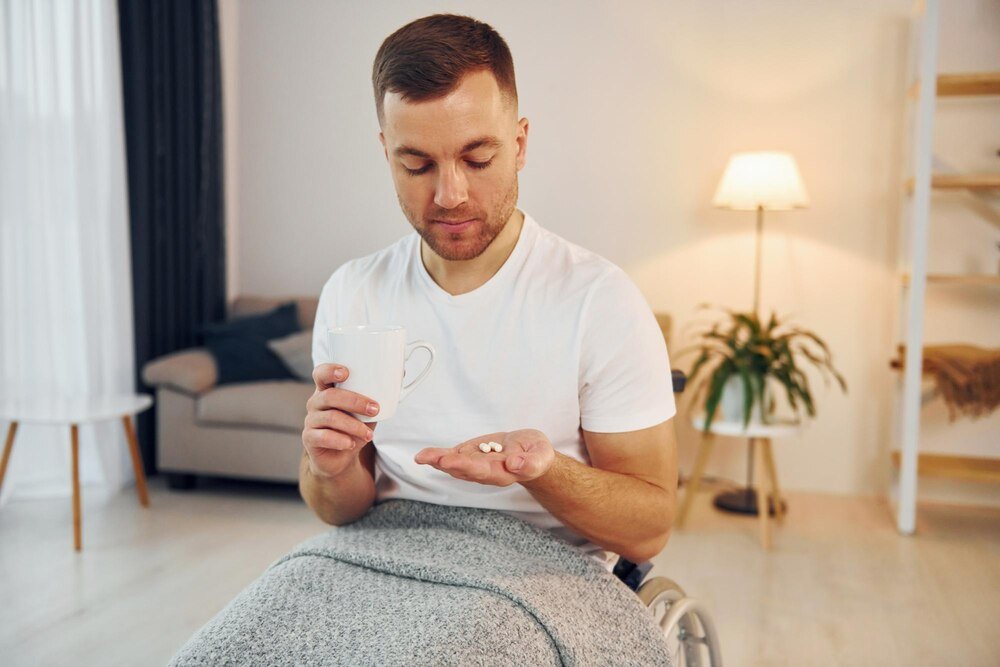
Dzisiaj w ramach projektu #DiabetesAnd poruszamy temat cukrzycy i zdrowia psychicznego.
Według Diabetes UK/PA 3 na 5 osób chorych na cukrzycę doświadcza problemów emocjonalnych lub związanych ze zdrowiem psychicznym. Cukrzyca to nie tylko zdrowie fizyczne - zdrowie psychiczne też jest bardzo ważne! W 2013 roku sam doświadczyłam wypalenia w cukrzycy i wiem, iż bez profesjonalnej pomocy (diabetologa i psychologa) oraz wsparcia bliskich, byłabym w mrocznym miejscu. Przyjmowanie pomocy/proszenie o pomoc nie jest czymś, czego powinniśmy się wstydzić.
Cukrzyca typu 1 wymaga od nas dużo pracy każdego dnia. Nagrodą za tę pracę jest życie. Dla wielu osób z naszego otoczenia jest to niezauważalne. Nieustanne sprawdzanie, testowanie, szacowanie, obliczanie, obserwowanie...Wszystko po to by bezpiecznie przejść przez dzień i zapobiec w przyszłości powikłaniom, które mogą skrócić życie. W cukrzycy to pacjent lub jego opiekun podejmuje decyzje co do podawania insuliny, która w nieodpowiedniej dawce może zabić. Te decyzje są podejmowane 24/7/365. Cukrzyca to niewidzialna choroba, ale to iż jej nie widać, nie znaczy, iż nie jest wyzwaniem.
Obecna sytuacja na świecie, spowodowana pandemią COVID-19, wpłynęła na stan psychiczny wielu osób z cukrzycą. W takich okolicznościach, prowadzenie choroby przewlekłej może stać się o wiele trudniejsze, a niestety od cukrzycy nie ma wakacji. Musimy dbać o siebie i nie tracić nadziei!
Pamiętajcie, nie jesteście sami! 💙
Weronika BlueSugarCube
Zapraszam Was również do przeczytania pierwszego i drugiego wpisu z serii #DiabetesAnd.
Polecam Wam mój artykuł dla Warsaw Press na temat zdrowia psychicznego i cukrzycowych technologii.
English version
Today, as part of the #DiabetesAnd project, we are talking about diabetes and mental health.
According to Diabetes UK/PA, 3 in 5 people with diabetes experience emotional or mental health problems. Diabetes is not all about physical health - mental health is very important too! In 2013, I experienced diabetes burnout myself and I know that without professional help (diabetologist and psychologist) and support from my loved ones, I would be in a dark place. Accepting/asking for help is nothing you should be ashamed of.
Type 1 diabetes requires a lot of work from us every day. The reward for this work is life. It is imperceptible for many people around us. Continuous checking, testing, estimating, calculating, observing... All to safely go through the day and prevent future complications that can shorten life. In diabetes, it is the patient or his/her caregiver who decides on insulin administration, which in the wrong dose can kill. These decisions are made 24/7/365. Diabetes is an invisible disease, but just because you can't see it doesn't mean it's not a challenge.
The current global situation, caused by the COVID-19 pandemic, has affected the mental health state of many people with diabetes. Under these circumstances, managing a chronic disease can become much more difficult, and unfortunately, there is no vacation from diabetes. We must take care of ourselves and not lose hope!
Remember, you are not alone! 💙
Weronika BlueSugarCube
I invite you to also read the first and the second post from the #DiabetesAnd series.
Check out my article for Beyond Type 1 about mental health and diabetes technology.













![Zadzwonią do drzwi i musisz ich wpuścić choćby w nocy i bez nakazu. 3 lata więzienia za odmowę kontroli w Twoim mieszkaniu [04.03.2026]](https://warszawawpigulce.pl/wp-content/uploads/2025/12/Kontrola-drzwi-rekawiczki-e1767192663286.webp)
